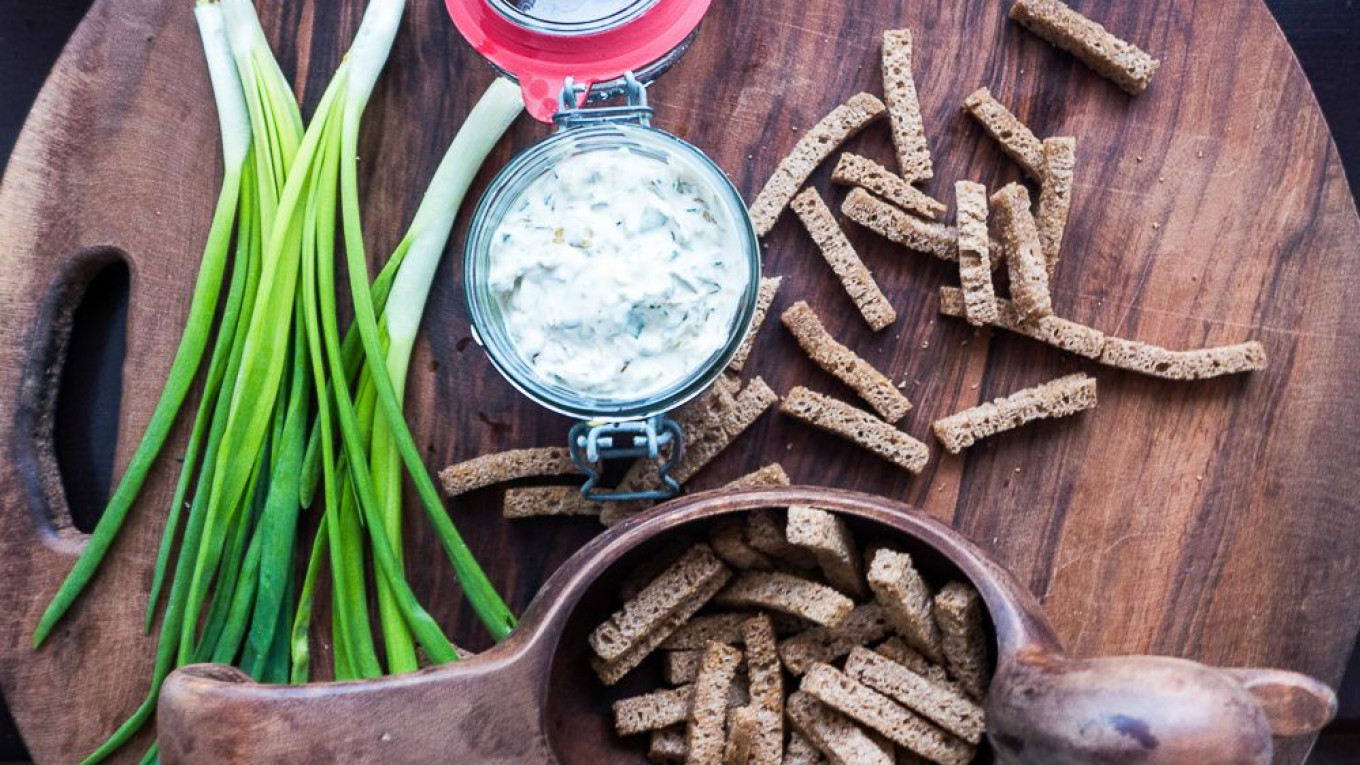One thing the Covid-19 lockdown has reinforced for me is that venerable adage, “Waste not want not.” When you write about food and develop recipes for a living, there is always a certain amount of food waste involved — rather more than your already very obliging family can consume. Though regrettable, you learn to live with it.
But not during a pandemic.
“The supply chain is fragile,” I say to myself, as I clear half-eaten plates from the table, or contemplate a pile of vegetable tops and tails. And I’m reminded of that matchless guide to homemaking in the time of Ivan the Terrible, Domostroi, which mandates that table scraps are to be re-used wherever possible, if only to feed the animals, who apparently are “quite content” with them.
So even though this week I relaxed my one-visit-to-the-grocery store-a-week regimen, I still try to maximize every ingredient and minimize waste. I parlay leftovers into lunch, repurpose tops and tails and bones into stock, and the now infamous sourdough starter discard finds its way into crackers, muffins, cookies, and other baked goods. But the most appealing new habit is window ledge gardening, about which I am almost messianic.
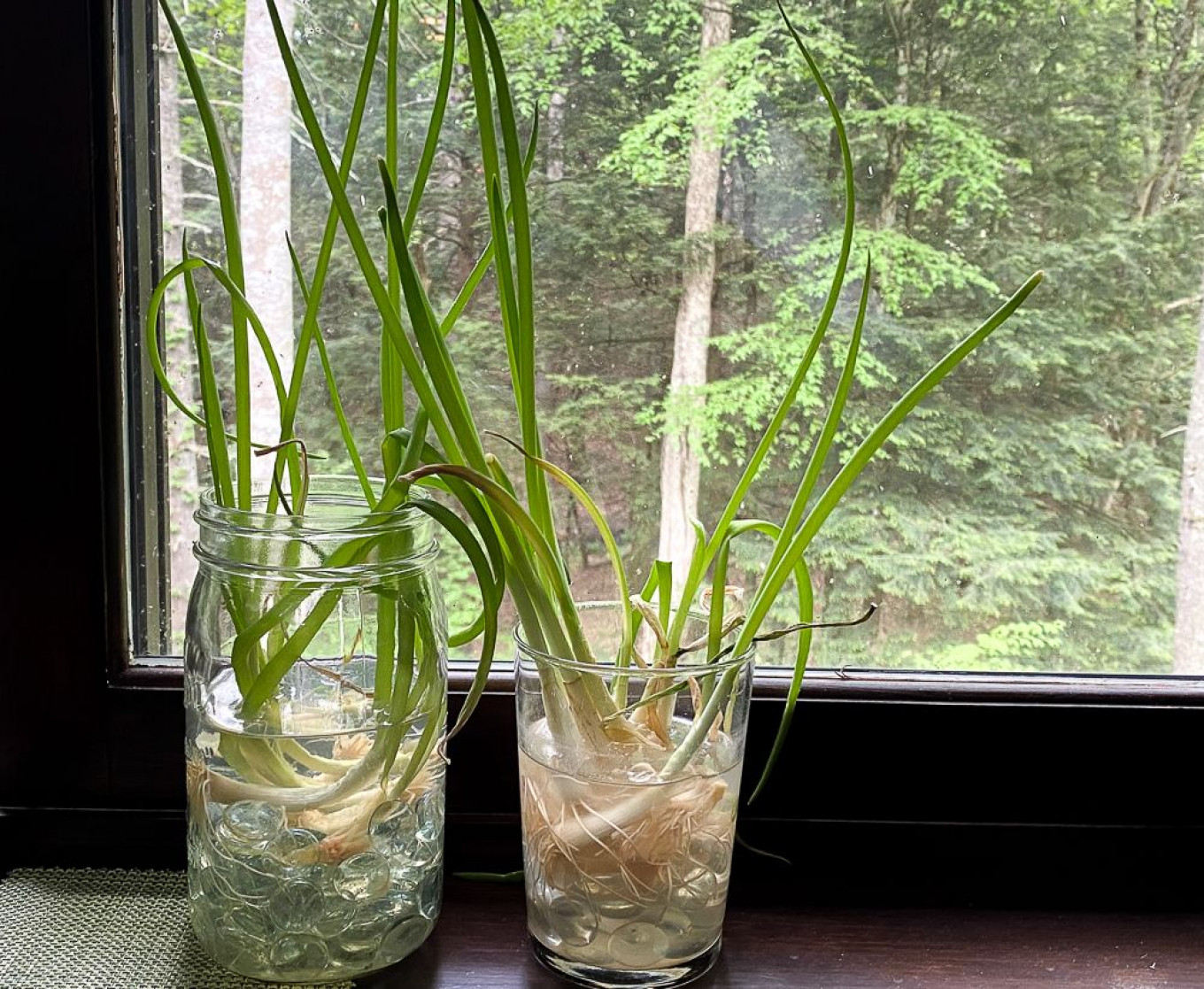
Gardening is not one of my superpowers, but early April found social media positively blossoming with examples of this thrifty way to re-root lettuce, herbs that come in a pot, celery, and scallions. Nestled into a glass of water, these begin to regenerate themselves with new growth that can be harvested in very short order.
There can never be too many scallions in my kitchen. When I was learning to cook in the 1990s in Russia, with access to only a limited amount of flavor enhancements, scallions were to food what a vibrant silk scarf is to a monochrome outfit. Scallions will always enliven a dish with a contrasting crunch, some heat, and a crisp allium-flavor that is much sweeter and milder than regular onions, but without the bite of chives or the heat of garlic. Scallions also provide a nice pop of appealing emerald green in an otherwise dull rice or potato salad and are the perfect foil to beef or pork dishes.
Interesting things happen when scallions encounter heat. Sautéed in butter or sizzled in hot oil prior to a stir-fry, their tartness softens. If you do plan to cook scallions, however, the best way is to roast them, thus activating caramelization, which brings forth all the deep and somewhat unexpected flavor of scallions. Roasted scallions do very well in soups or as the crowning glory on a cheese and onion tart.
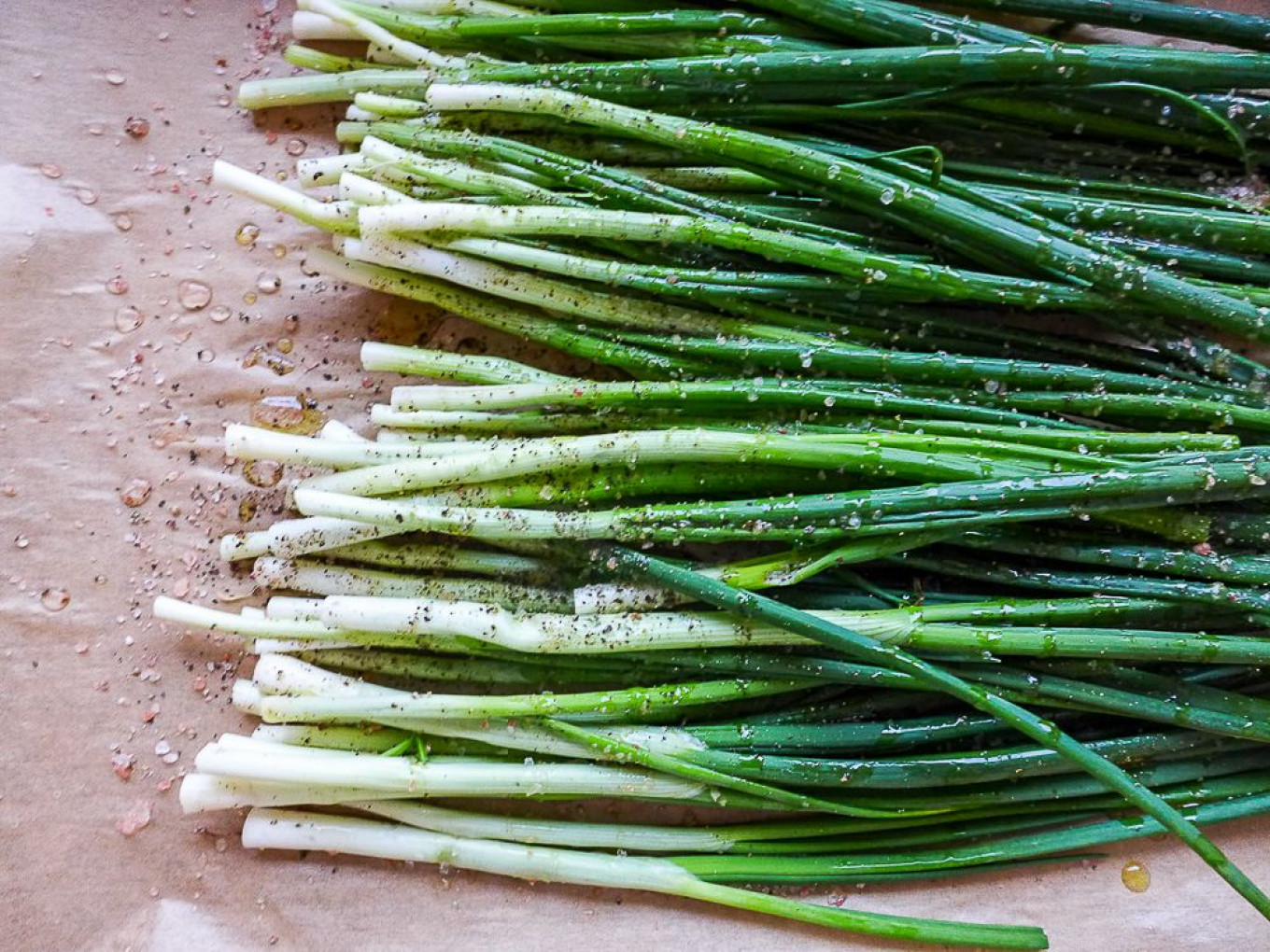
But my favorite use for roasted scallions is to pair them with Russia’s incomparable sour cream in a delectably sinful dip, which can do excellent double duty as a sauce for poached fish, roasted vegetables or potatoes. The sole redemption is the fact that in its dip iteration, it can be paired with ultra-thrifty sukhariki, Russia’s ubiquitous twice-baked bread treats.
Bread in Russian culture is a potent symbol of both life and prosperity, and this symbolism can verge on the holy. Guests in Russia are greeted with a large round loaf of bread topped with salt as a gesture of hospitality. Discarding bread is abhorrent: doing so may incur the wrath of the domovoi or house spirit, who wreaks domestic havoc when riled. The result is a plethora of traditional recipes in Russia using stale or dry bread, of which sukhariki is one of the more tenacious thanks to its ease of preparation and popularity with beer drinkers.
This ancient method of preserving fresh bread is easy to replicate in a conventional oven (see recipe below). The flavor of Russia and Eastern European dark, rye, or malted bread is equally appealing in dried form, but can also be enhanced with additional herbs and/or spices. Sukhariki will last for several weeks in an airtight container and can do yeoman’s service on top of soups, bulking up salads, or to serve alongside dips or hummus as a snack or hors d’oeuvres.
So, find the very best sour cream you can — the kind a wizened babushka sells in the farmers’ markets in which a spoon can stand on its own. You can cut this recipe with Greek yogurt if you are counting calories or make it with Icelandic skyr or Middle Eastern labneh, but unapologetic, full fat Russian sour cream is the perfect base for roasted scallions. And once your sukhariki are ready, pour yourself a nice cold beer and take it easy. You’ve earned it.
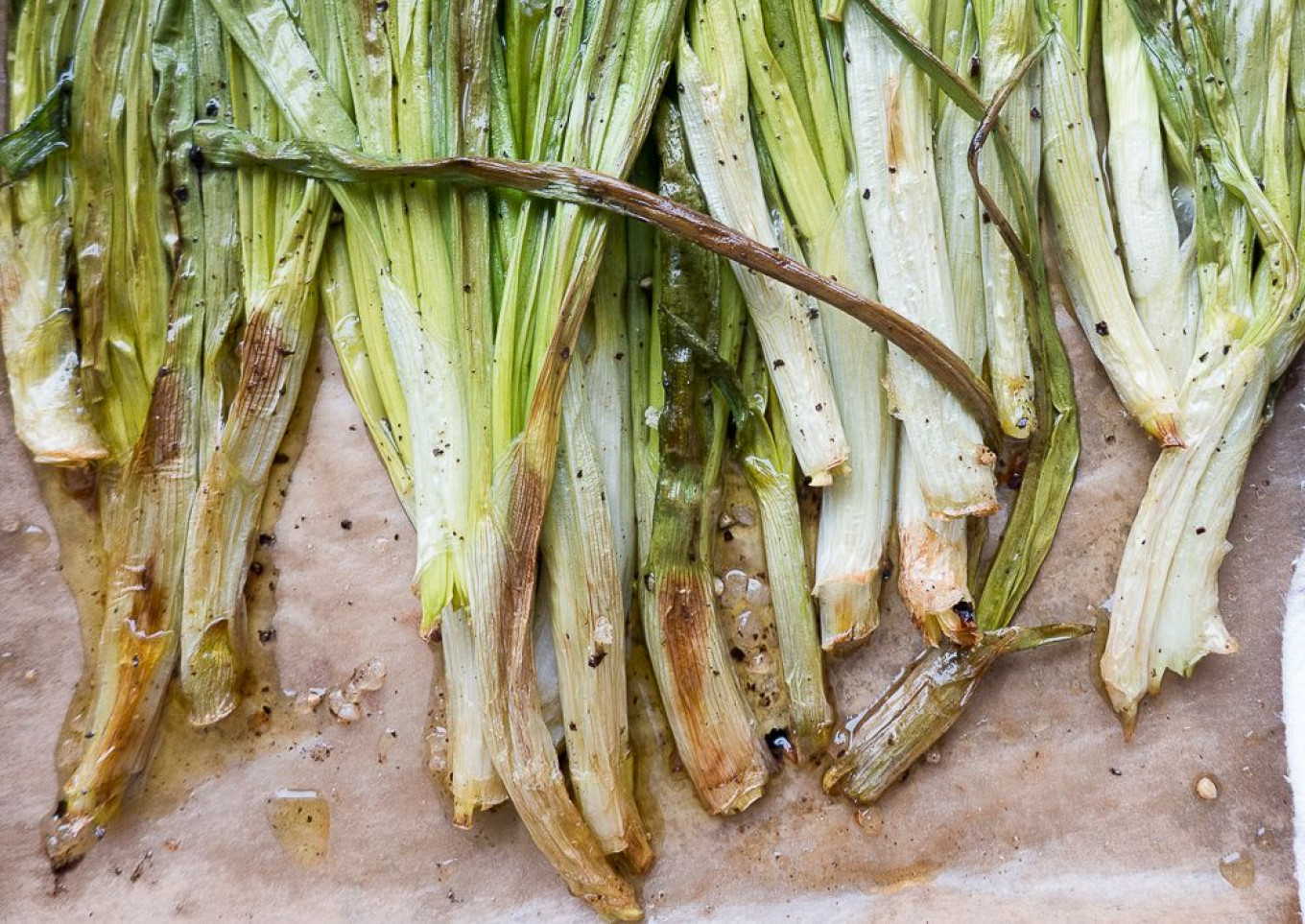
Sour Cream and Roasted Scallion Dip
Ingredients
- 2 cups (475 ml) best-quality sour cream (or a combination of sour cream and Greek yogurt)
- 2 bunches scallions, cleaned plus 3 fresh scallions for garnish
- 1 bunch curly parsley, finely chopped
- ¼ cup (60 ml) finely chopped dill
- ¼ cup (60 ml) fresh mint, finely chopped
- Juice of one lemon
- Salt and pepper
- 6 Tbsp olive oil divided into two equal portions (3 Tbsp each) and more for drizzling on the completed dip.
- ¼ teaspoon of cayenne pepper
Instructions
- Preheat the oven to 400ºF (220ºC) and line a baking sheet with parchment paper.
- Toss the cleaned scallions with 3 Tbsp olive oil, a generous pinch of salt, and several grinds of black pepper. Arrange on the prepared baking sheet in one layer.
- Roast for 10 minutes, checking carefully to make sure the scallion ends do not scorch.
- Let the scallions cool to room temperature.
- Combine the roasted scallions and all of the remaining ingredients except the cayenne pepper in a food processor and pulse 6-9 times until combined.
- Spoon the mixture into a non-reactive container with a tight lid and chill for at least 4 hours.
- Garnish just before serving with cayenne pepper, a drizzle of olive oil, and fresh scallions cut finely on the diagonal.
Black Bread Sukhariki
Ingredients
- One loaf black bread such as Borodinsky or Pumpernickel, crusts removed
- ⅓ cup (80 ml) olive oil
- ¼ cup (60 ml) melted clarified butter or ghee at room temperature
- Salt
Instructions
- Preheat the oven to 275ºF (135ºC) and line a large baking sheet with parchment paper.
- Cut the bread into slices approximately 3-inch (7 centimeters) long and ½-inch (2 centimeters) wide. Arrange in a single layer on the prepared baking sheet.
- Whisk together the olive oil and clarified butter and let it cool to room temperature. *
- Brush the mixture gently on each side of the bread slices. Sprinkle with salt on each side.
- Bake in the preheated oven for at least 2 hours or until the slices are crisp.
- Cool the sukhariki to room temperature, then store in an airtight container.
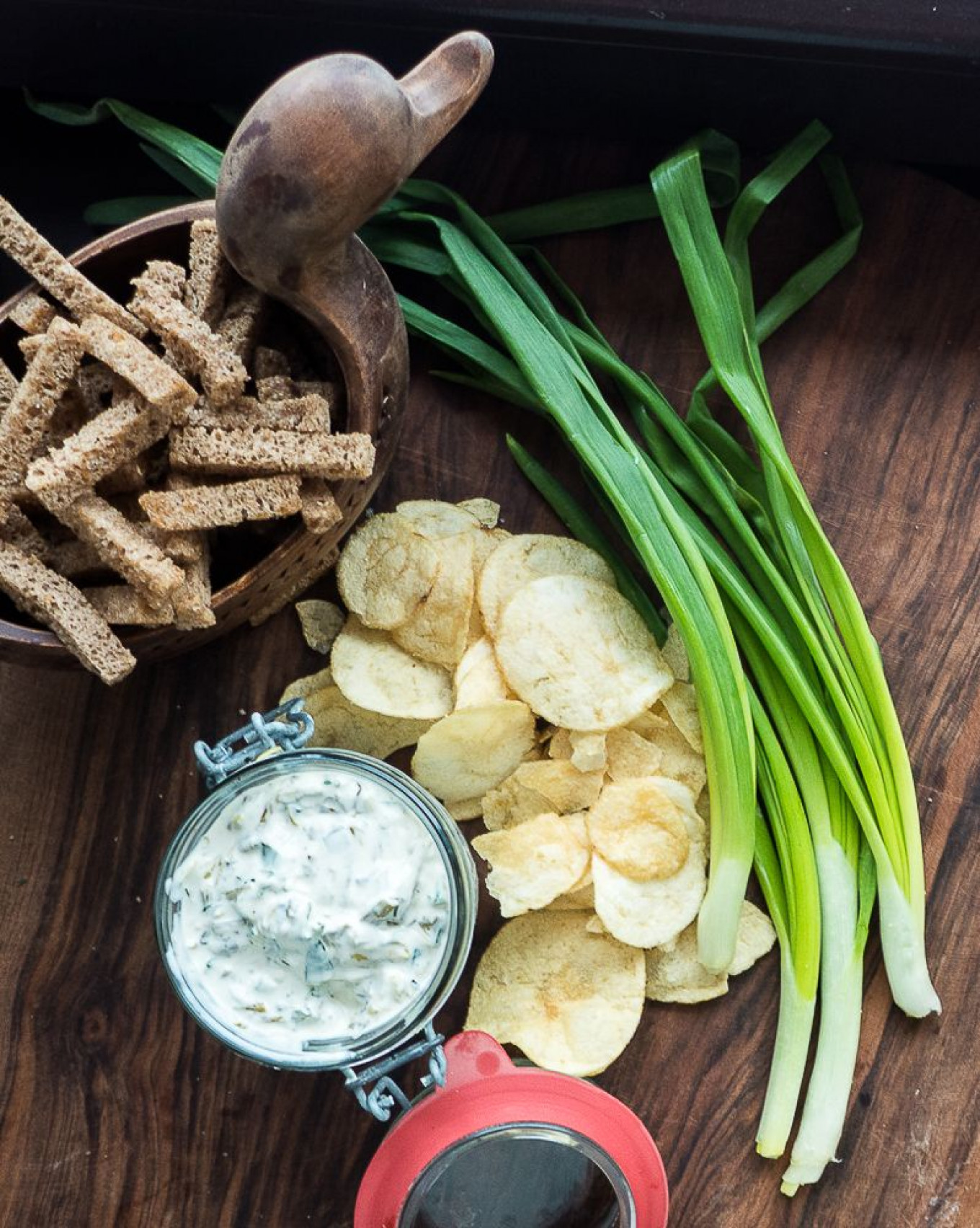
*If you want to add different flavor layers to the sukhariki, toast the spices (if using) gently before grinding them in a coffee or spice grinder. If using fresh herbs, chop them finely. Then heat the oil and ghee mixture until it is just simmering, add the spices or herbs and let cool to room temperature to infuse the oil with the flavors.
Great flavor options include fennel seed, cumin, rosemary, thyme, paprika, or marjoram.
A Message from The Moscow Times:
Dear readers,
We are facing unprecedented challenges. Russia's Prosecutor General's Office has designated The Moscow Times as an "undesirable" organization, criminalizing our work and putting our staff at risk of prosecution. This follows our earlier unjust labeling as a "foreign agent."
These actions are direct attempts to silence independent journalism in Russia. The authorities claim our work "discredits the decisions of the Russian leadership." We see things differently: we strive to provide accurate, unbiased reporting on Russia.
We, the journalists of The Moscow Times, refuse to be silenced. But to continue our work, we need your help.
Your support, no matter how small, makes a world of difference. If you can, please support us monthly starting from just $2. It's quick to set up, and every contribution makes a significant impact.
By supporting The Moscow Times, you're defending open, independent journalism in the face of repression. Thank you for standing with us.
Remind me later.



